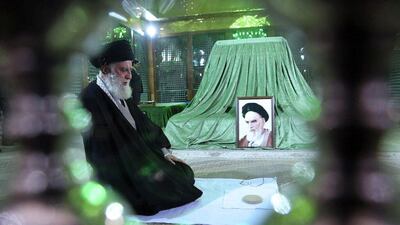Iran jailed two people working for a charity on charges of spying for the CIA, Iran's judiciary spokesman said on Tuesday.
"Two … CIA spies who were working under the cover of an organisation and charitable foundation have been identified, tried and sentenced to ten years in prison for spying and five years in prison for acting against national security," Gholamhossein Esmaili said.
Their names would not be released yet because the sentence has not been finalised, Mr Esmaili told a press conference streamed live on the judiciary's website.
Tensions between Tehran and the Washington have steadily risen since President Donald Trump withdrew from the nuclear agreement and reimposed sanctions on Iran in 2018.
Tehran responded by gradually rolling back its commitment to the deal in hopes of mounting pressure on Europe to find a way for it to sell its crude oil abroad despite the American sanctions.
An uneasy quiet has settled over the Middle East in the month since a US drone strike killed Iranian general Qassem Soleimani.
Iran responded with a flurry of ballistic missiles aimed at US forces in Iraq, and announced it would no longer respect limits set on how many centrifuges it can use to enrich uranium.
Iranian President Hassan Rouhani said Iran was ready for engagement with Europe.
"Whenever the other party fully implements its commitments, Iran will return to its commitments," Mr Rouhani said.
In January, Britain, France and Germany triggered the accord's dispute mechanism to force Iran into discussions, starting the clock on a process that could result in the "snapback" of United Nations and European Union sanctions on Iran.
Speaking with reporters in English, the EU's High Representative for Foreign Affairs Josep Borrell said: "We are in agreement not to go directly to a strict time limit that would oblige to go to the [UN] Security Council."
"I asked to the Iranian authorities and I think they agree we have to continue with the survey of the International Atomic Energy Agency," Mr Borrell said.

